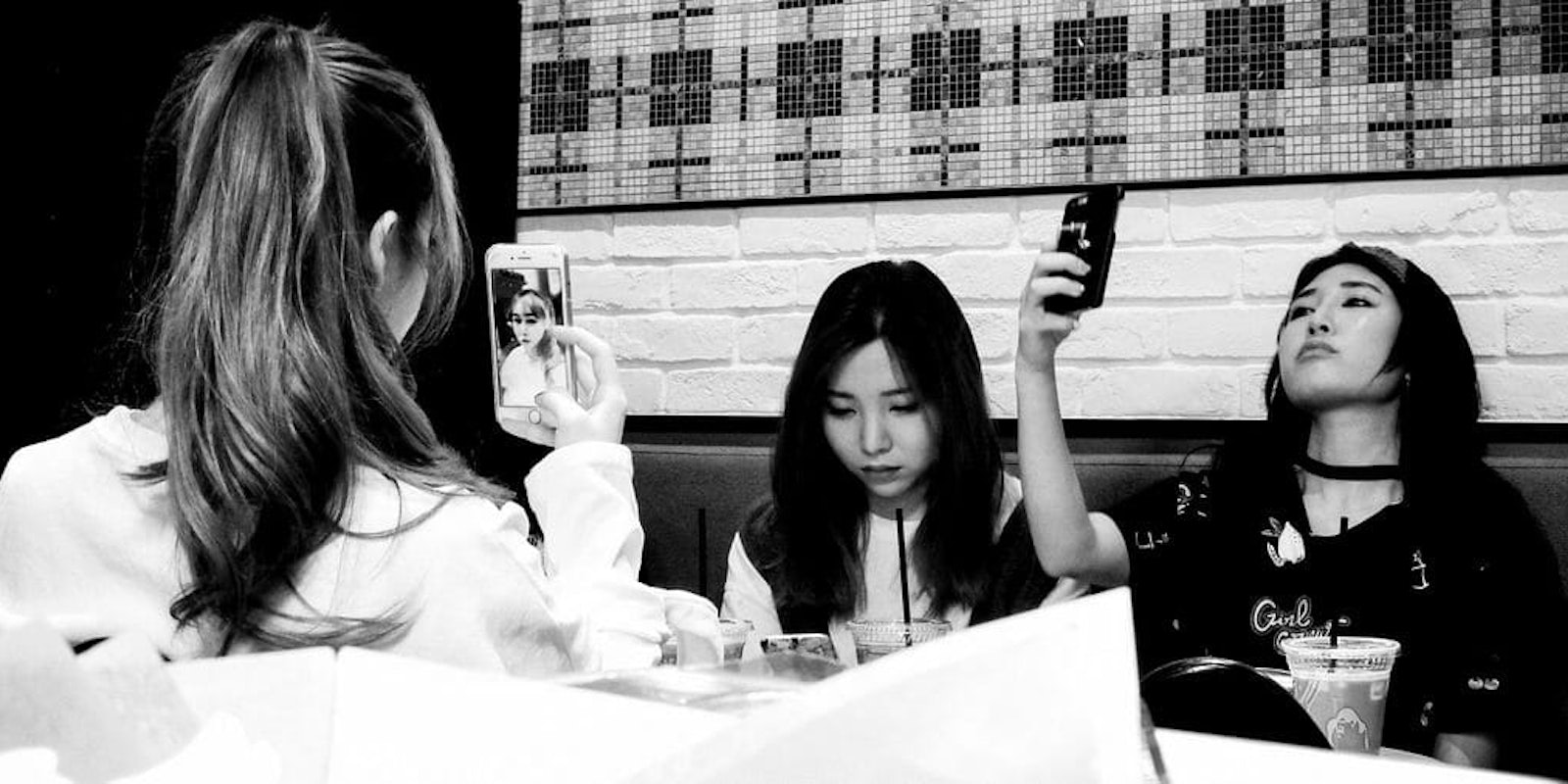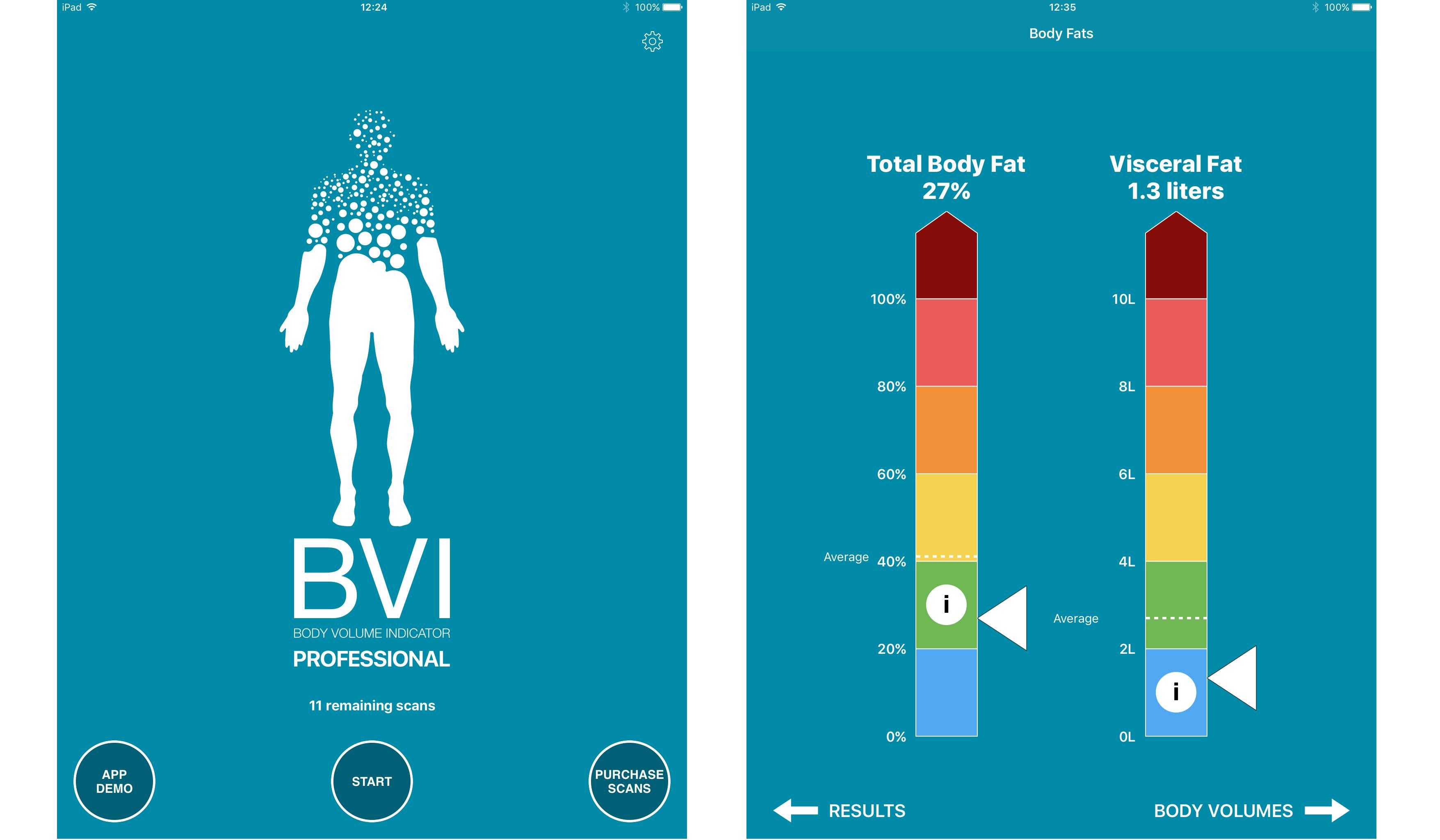You’ve heard a photo can tell a thousand words, but you may not realize a photo can also tell a thousand data points. In the age of smartphones and AI, companies can analyze your health, overall wellness, and even your estimated life expectancy—just from a photo.
An app called BVI Pro is perhaps the latest to venture into this area. Just launched earlier this week on iPad, the BVI Pro app uses two photos—a head-on shot and shot of your profile—to estimate your body volume. This should give you a more complete picture of your internal health. Select Research, the company behind the app, also eventually hopes to gather enough data to prove to leading governmental and global health bodies that BVI is a more accurate indicator of health than the current standard, BMI.
Take, for example, a bodybuilder: A bodybuilder packs an enormous amount of muscle onto their frame, which drives up their weight (and their BMI). In actuality, the bodybuilder has a low amount of visceral body fat around their abdomen, and visceral body fat is one of the leading indicators of health issues such as Type 2 diabetes. While BMI might suggest this individual was at risk for such a disease, BVI would show they were healthy.
“Governments have been using BMI out of default because there’s been no other alternative, and people are being misdiagnosed for health risks as a result,” said Richard Barnes, CEO of Select Research, the company behind BVI Pro.
Select Research is taking a cautious approach to its app. For now, it’s limited to the iPad, so that photos gathered are relatively standardized. It’s also designed to be used by physicians in a clinical setting (at least for now). And while the app analyzes photos of your visage with little to no clothing on, the app doesn’t store any photos (only the resulting outline of the body and relevant measurements, like waist-to-hip ratio), or any personal identifying information. It also encrypts all data sent between the mobile app and the cloud for processing.
Select Research isn’t the only company working to analyze wellness based on photos, though. The National Human Genome Research Institute is using selfies to analyze children for rare diseases. “Human malformation syndromes appear different in different parts of the world,” Paul Kruszka, a medical geneticist in NHGRI’s Medical Genetics Branch, said. Where experienced clinicians may have difficulty diagnosing diseases such as DiGeorge syndrome, facial analysis technology can make correct diagnoses more than 96% of the time.
A company called Lapetus Life Solutions is also using facial analysis on selfies but to a different outcome: to estimate life expectancy. And life insurance companies are quite interested. From an image of your face, Lapetus can learn whether you were ever a smoker, identify physiological markers of aging, and estimate your body mass index.
Life insurers already try to estimate life expectancy based on a number of factors, such as your prescription history and motor vehicle records. Going through all that means insurers may take up to a month before approving applicants for a policy. With Lapetus’s Chronos technology, that approval time shrinks down to 10 minutes.
There are clearly some benefits and trade-offs to photo-based health analysis. On one side, it’s convenient. It can provide you with useful health data in a noninvasive way. However, if researchers, clinicians, and insurers can learn this information from a photo you provide, what’s to keep less altruistic entities from analyzing selfies you’ve publicly shared to social media?
The Donald Trump administration has already damaged internet privacy rules. We’re also in the face of an impending healthcare overhaul that could send health insurance costs skyrocketing for those with preexisting conditions. What’s to keep pharmaceutical companies from analyzing your photos and presenting ads catering to your health conditions? What’s to keep health insurance companies from mining your social media feeds before estimating your premium costs? What if they determine—from a photo—that you have a preexisting condition you were never even aware you had?
We’re in a quirky, murky period where technological advances are outpacing regulation—and those who should be regulating it don’t even care enough to learn what’s happening. Luckily, companies like those we mentioned are taking precautions that consider a person’s privacy. (On top of that, Lapetus’s Chronos technology would even need state regulatory approvals before it can be adopted in the wild.) As the line between what’s public and what’s private blurs, though, that may not always be the case. Your photos could be up for debate—by health analyzing algorithms.

